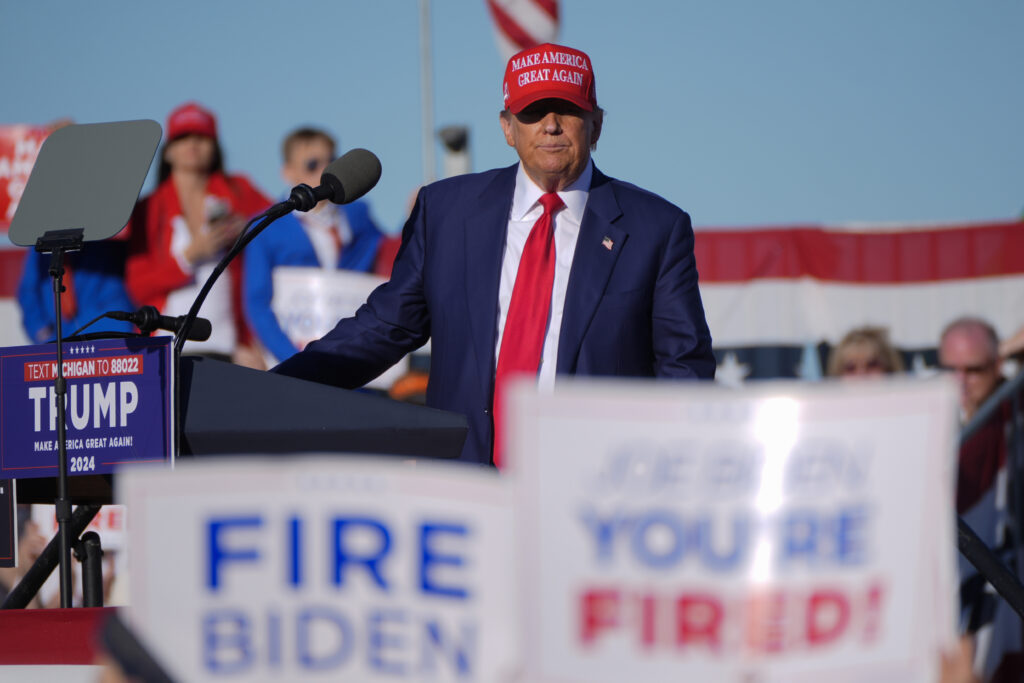
Former President Donald Trump asked a judge in Florida to dismiss charges against him related to classified documents on the grounds that the Department of Justice was unfairly targeting him, according to court documents made public on Thursday.
Trump’s defense attorneys made the request in March in a previously sealed filing, claiming that special counsel Jack Smith’s prosecution against him was “selective and vindictive.”
Trump’s attorneys drew comparisons to nine other officials, including President Joe Biden and former Vice President Mike Pence, arguing that they had allegedly mishandled classified material but were never held accountable for it in the same way Trump has been.
“American history is chock full of public examples involving alleged mishandling of classified information and documents, which did not result in the type of politically motivated charges that the Special Counsel’s Office has brought against President Trump and his codefendants,” the attorneys wrote.
After more than a year of back-and-forth between Trump and the National Archives and Records Administration, a DOJ-issued subpoena for Trump’s documents, and a search of Trump’s Mar-a-Lago residence, Trump was indicted on charges of willfully retaining national defense information and obstructing a federal investigation. He has pleaded not guilty to the charges and argued they should be dropped for several reasons, one being the newly unsealed selective and vindictive argument.

Trump’s attorneys cited in their dismissal request what they described as “glaring and egregious examples” of classified documents controversies, which included former special counsel Robert Hur finding after a yearlong investigation that Biden was reckless with classified material and disclosed classified information to his ghostwriter.
Hur’s report of his findings, released in February, had prompted widespread comparisons between Trump’s and Biden’s cases. Hur, perhaps in anticipation of this, directly addressed their differences, saying Biden was a cooperative and proactive subject, while Trump’s case involved “serious aggravating facts.”
Smith, for his part, argued in a response that Trump’s and Biden’s cases had only “superficial similarities,” citing the “particularly strong evidence of willfulness” in Trump’s case.
Trump’s defense attorneys also pointed to an incident from 2023 involving Trump’s former vice president. In that case, the DOJ “bypassed standard procedures” to take back a small number of documents with classified markings from Pence’s home in Indiana, Trump’s attorneys wrote.
The attorneys also detailed classified material issues involving former President Bill Clinton, Trump’s 2016 presidential opponent Hillary Clinton, former FBI Director James Comey, former CIA Directors David Petraeus and John Deutch, former National Security Adviser Sandy Berger, and former COVID-19 coordinator Deborah Birx.
“Dozens of public officials have faced allegations relating to the handling of classified information without being charged with the types of felonies alleged in the Superseding Indictment,” Trump’s attorneys wrote. “In this case, the record adequately demonstrates impermissible prosecutorial motives, driven in an unprecedented fashion by a sitting president to serve his political objective of prosecuting his predecessor and opponent.”
CLICK HERE TO READ MORE FROM THE WASHINGTON EXAMINER
Judge Aileen Cannon, a Trump appointee, has not yet ruled on whether to dismiss Trump’s charges based on them being selective and vindictive.
Cannon did, however, deny two other requests from Trump earlier this year that his charges be dropped based on claims that he was allowed to possess classified material under the Presidential Records Act and on the argument that his charges, brought under the Espionage Act, were unconstitutionally vague.






